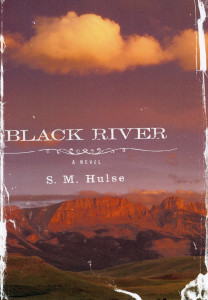 Wes Carver is keeping his promise to take his wife home to Black River, Montana. He had hoped to enjoy her gentle companionship for the drive, but instead, a box with her ashes rests on the pickup seat next to him.
Wes Carver is keeping his promise to take his wife home to Black River, Montana. He had hoped to enjoy her gentle companionship for the drive, but instead, a box with her ashes rests on the pickup seat next to him.
Wes grew up in Black River and followed in his father’s footsteps, working as a corrections officer at the Montana State Prison. He and Claire spent the first 10 years of their marriage in this town, raising her son and making Wes’s musical talents a pleasurable focus of their lives away from his job.
When a riot erupts at the prison, Wes is held hostage for three days and brutally tortured by an inmate. His hands are so severely damaged that Wes is no longer able to play his beloved fiddle. But the emotional scars are even deeper, affecting his family and eventually separating his stepson from the household.
Wes and Claire move away, and now, 20 years later, he returns to bury his wife, face his adult stepson, and testify at the parole hearing for the man who inflicted the pain and suffering during the riot.
Inspired by the true story of the 1959 riot at the Old Montana Prison, Hulse explores the themes of revenge, justice, and redemption, moving back and forth in time to reveal events that shape her characters.
“By making Wes’s suffering so palpable, Hulse makes it even more moving when, in the novel’s final pages, he achieves something he’s been seeking for a very long time: grace,” writes Kirkus in a starred review.
The author’s love for the western landscape, and her knowledge of fiddle playing and horses enhance the plot and give it authenticity. Her writing in this taut debut has earned comparisons to western authors Annie Proulx, Wallace Stegner and Kent Haruf from Library Journal.
Hulse received her BFA from The University of Montana, an MFA from the University of Oregon and was a fiction fellow at the University of Wisconsin-Madison. She lives in Spokane.
– Judy Shafter